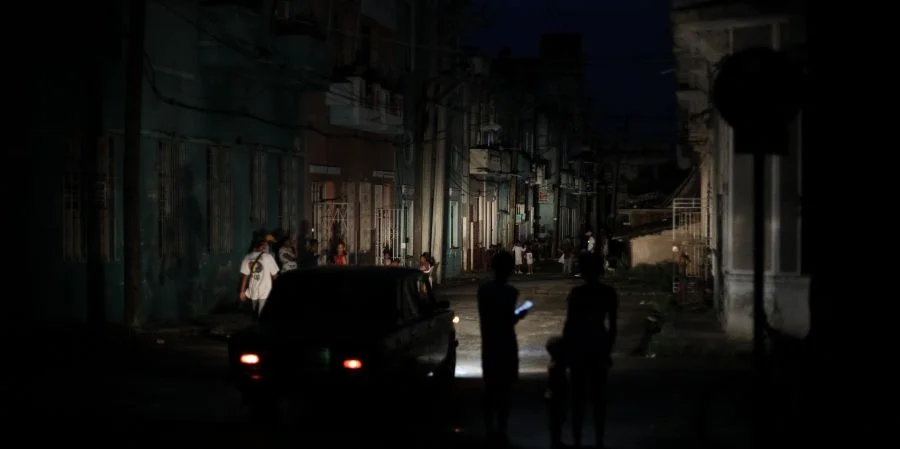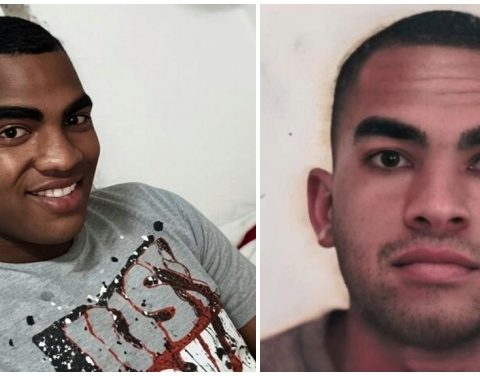HAVANA, Cuba. – As I write these lines, I have been without electricity service for 73 hours. I had to charge the computer and phone at the house of a friend who lives near an embassy and, therefore, they turned on the power for a few hours during these three days. My food is almost spoiled and my water is running out (without power, the motor that supplies the elevated tanks cannot be started). But my situation is not the most critical, “there are people who are worse,” we Cubans usually say to encourage ourselves in moments of greatest crisis and as a sort of “don’t complain, you could be worse.” This is the endurance of some.
In the town of Antilla, Holguín, they have been without electricity service for more than 100 hours; in the province of Camagüey, more than 80; in Guanajay, province of Artemisa, until Monday morning they had another 100 hours.
“People cook with firewood or with whatever they find. Those who do not have food or it has spoiled, stand in long lines to buy pizzas and spaghetti in a cafeteria that has an electric plant. The bread hasn’t appeared in a while,” commented a citizen residing in Guanajay who requested anonymity because in Cuba it can be considered a crime to give statements to the unaccredited press.
cistern water
From Camagüey, the colleague José Luis Tan Estrada He wrote to me: “I am cooking the little that is left with charcoal as if there were no tomorrow because everything is going to waste. There is no liquefied gas for cooking and I am saving water from the cistern.”
In the province of Guantánamo, which is already experiencing extra damage due to Hurricane Oscar, they not only lack electricity and liquefied gas but also lack food. Two days ago, the authorities held a fair to sell firewood (wood cuttings) and bananas. A family with whom I had contact in that end of the country reported that that day they only ate bananas boiled with firewood.
In Placetas, Villa Clara, they have restored the electrical service for a few hours that “are not enough at all,” said Bárbara Isaac, mother of two political prisoners from the anti-government protests of July 11, 2021.
“Thank God we have a little bit of gas left (in a small cylinder), we are looking to buy more and it doesn’t appear, they say the price went up, from 8,000 (24 euros) to 15,000 pesos (44 euros). There is hardly anything to buy to eat during the day due to the blackouts, people are fighting for bags of charcoal, which are already at 1,400 and 1,600 pesos (around 5 euros). Well, it was a disaster, and the people were silent,” he said.
Casseroles
There are also individuals who, taking advantage of their privileged access to electricity, promote cell phone charging on social networks at 200 pesos per hour (approximately 0.60 euros). Two days ago my patience ran out. I took a cauldron and a spoon and, from the roof of my house, I began to ring it with all my might. In Cuba, the so-called cacerolazos are a form of protest during the darkest hours of the blackout. Only one neighbor joined in, very quietly and for a few minutes. After a while another sound sounded and then another casserole in the distance. A neighbor, as if justifying his cowardice, told me: “People are very afraid.”
“That’s why we are the way we are, that’s why they put us in so many hours of blackout, because people remain silent,” I responded. More than 30 hours have passed since that lonely pot crash and we are still without power.
Courage is not the absence of fear, but the ability to overcome it. I am also afraid, because right now there are hundreds of people imprisoned or have been brutally beaten for this simple form of protest: banging pots and pans. There are dozens of soldiers in the streets, uniformed and dressed in civilian clothes. The regime fears an outbreak similar to that of 11J and many others that have occurred since then whose triggers were, fundamentally, blackouts. The most recent and massive one occurred just five months ago.
But this time, like never before, the blackout is widespread. The few hours of electricity – and in certain areas – are achieved from generator sets or at times of synchronization that fail after a few hours. The national synchronization of thermoelectric plants has failed three times in less than three days. Less than half of the population has had access to electrical service.
Some Cubans are already beginning to overcome fear and some peaceful protests have taken place. People take advantage of the darkness of the night to avoid repression; some young people even put scarves or sweaters on their heads to cover their faces and avoid identification by the authorities and, thus, arrest and imprisonment.
The demonstrations have been concentrated mainly in the provinces of Havana and Santiago de Cuba. Along with the banging of pots and pans, phrases such as “Díaz-Canel singao” and “Down with the dictatorship” have been heard.
Miguel Díaz-Canel, in the olive green military uniform, appeared on national television to remember – indirectly – that he gave the order to combat peaceful protesters on June 11, considered common criminals.
“We are not going to accept nor allow anyone to act causing vandalism and much less altering the citizen tranquility of our town. That is a conviction and a principle of our Revolution,” stated the president and first secretary of the Communist Party of Cuba.
Also the Minister of Energy and Mines, Vicente de la O Levy, referred to the participants in the protests as “indecent” and “the coward who does not reason and the one who sells out”; He also described the demonstrations as “minimal incidents.”
Energy emergency
The hospitals have been kept functioning thanks to the generator sets but, after so many hours working, some have failed. On Saturday, the Borrás-Marfán University Pediatric Hospital in Havana collapsed. A neighbor told ABC how in the early morning two serious cases of children had to be taken out by ambulance.
The situation is critical, although the authorities do not recognize it and try to maintain expectations. On Sunday, for the second time in less than a week, they again suspended administrative and teaching activities for at least the next three days, which indicates a prolongation of the energy emergency and the paralysis of the country, with the exception of the special municipality of Isla de La Juventud, which, due to its geographical condition, has its own thermoelectric plant. In the midst of Cuba’s worst energy disaster due to the lack of fuel and the regime’s obsolete infrastructure, without water, without food, without power, the resistance of Cubans is being tested.
“The current just got to me. I’m running to load everything and plug in the refrigerator. They can remove it at any time.”
*This article was originally published in the Spanish newspaper ABC.


















